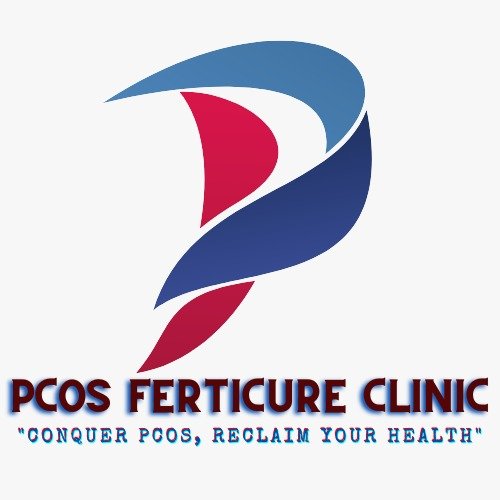PCOS can make weight loss a challenging journey, but with the right approach and determination....
Read more1. Introduction to Pregnancy Management
Pregnancy is a remarkable journey filled with excitement, anticipation, and joy. Proper pregnancy management is crucial for the health and well-being of both the mother and the baby. In this section, we'll explore the importance of effectively managing pregnancy and provide an overview of the different stages of pregnancy.
1.1 Why Pregnancy Management is Important
Effective pregnancy management ensures a healthy and safe pregnancy for both the mother and the baby. It involves regular check-ups, proper nutrition, prenatal care, and emotional well-being. Managing pregnancy helps identify and address potential complications early, reducing risks and ensuring a smooth pregnancy journey.
1.2 Overview of Pregnancy Stages
Pregnancy is divided into three trimesters, each with its own set of developments and challenges:
- First Trimester: This marks the beginning of pregnancy and includes significant changes in the mother's body, such as morning sickness and fatigue. It's a critical time for fetal development.
- Second Trimester: During this trimester, the baby's organs continue to develop, and the mother may start feeling fetal movements. It's often considered the most comfortable trimester.
- Third Trimester: In the final trimester, the baby grows rapidly, and the mother may experience discomfort, including backaches and increased pressure. Preparing for labor and delivery becomes a focus.
Understanding these stages is essential for effective pregnancy management, as each phase requires specific care and attention. Whether you're a first-time mother or already experienced, proper pregnancy management is key to a healthy and happy pregnancy journey.
2. Preconception Planning

Preconception planning is a crucial step in ensuring a healthy and successful pregnancy. This section will explore the importance of preconception care and provide valuable tips for preparing your body for pregnancy.
2.1 Importance of Preconception Care
Preconception care involves taking proactive steps to optimize your health and fertility before becoming pregnant. It offers several benefits:
- Healthy Pregnancy: Preparing your body in advance increases the likelihood of a healthy pregnancy and reduces the risk of complications.
- Identifying Risk Factors: It allows you to identify and address any underlying health conditions or risk factors that could affect pregnancy.
- Optimizing Nutrition: Preconception care emphasizes proper nutrition, ensuring that you enter pregnancy with essential nutrients.
2.2 Tips for Preparing for Pregnancy
Preparing for pregnancy involves several steps to enhance your chances of conceiving and having a healthy baby:
- Consult with a Healthcare Provider: Schedule a preconception check-up with your healthcare provider to assess your overall health and address any concerns.
- Folic Acid Intake: Begin taking folic acid supplements, as they play a crucial role in preventing neural tube defects.
- Quit Smoking and Limit Alcohol: Smoking and excessive alcohol consumption can harm fertility and the developing baby.
- Manage Chronic Conditions: If you have chronic conditions like diabetes or hypertension, work with your healthcare provider to manage them effectively.
- Healthy Diet and Exercise: Maintain a balanced diet and engage in regular physical activity to support your overall health and fertility.
- Reduce Stress: Practice stress-reduction techniques such as meditation, yoga, or deep breathing exercises.
Taking these steps during preconception planning sets the foundation for a successful and healthy pregnancy. It's a proactive approach to ensure the best possible start for you and your baby.
3. Early Pregnancy Care
.jpg)
Early pregnancy care is essential for ensuring a smooth and healthy pregnancy journey. This section will focus on the early stages of pregnancy, including confirming pregnancy, choosing a healthcare provider, and addressing first trimester symptoms.
3.1 Confirming Pregnancy
The first step in early pregnancy care is confirming that you are pregnant. You can do this through:
- Home Pregnancy Test: Take a home pregnancy test to detect the presence of the pregnancy hormone hCG in your urine.
- Consulting a Healthcare Provider: Schedule an appointment with your healthcare provider for a blood test to confirm pregnancy.
3.2 Choosing a Healthcare Provider
Selecting the right healthcare provider is crucial for your pregnancy journey. Consider these factors:
- Obstetrician or Midwife: Decide whether you prefer an obstetrician-gynecologist (OB-GYN) or a certified nurse midwife for your care.
- Hospital or Birth Center: Choose a hospital or birthing center that aligns with your birth plan and preferences.
- Personal Compatibility: Ensure that you feel comfortable and have good communication with your chosen provider.
3.3 First Trimester Symptoms and Management
The first trimester brings physical and emotional changes. Here's how to manage common symptoms:
- Morning Sickness: Eat small, frequent meals and stay hydrated to alleviate nausea and vomiting.
- Fatigue: Get plenty of rest and prioritize sleep to combat early pregnancy fatigue.
- Breast Tenderness: Wear a supportive bra and avoid caffeine to reduce breast discomfort.
- Emotional Support: Reach out to friends, family, or support groups to manage mood swings and emotional changes.
Early pregnancy care sets the foundation for a healthy pregnancy. Confirming your pregnancy, choosing the right healthcare provider, and managing first trimester symptoms are essential steps in this exciting journey.
4. Nutrition and Diet During Pregnancy

Maintaining a balanced and nutritious diet is vital during pregnancy to support the health and development of both the mother and the baby. In this section, we'll explore the essential nutrients required during pregnancy and how to maintain a healthy diet.
4.1 Essential Nutrients for Pregnancy
Pregnant women require specific nutrients to ensure a healthy pregnancy. These essential nutrients include:
- Folic Acid: Folic acid helps prevent birth defects and is crucial in early pregnancy.
- Iron: Iron supports the increased production of red blood cells and prevents anemia.
- Calcium: Calcium is essential for the development of the baby's bones and teeth.
- Protein: Protein is necessary for the growth and development of the baby's organs.
- Fiber: A high-fiber diet helps with digestion and prevents constipation, common during pregnancy.
4.2 A Balanced Diet for Expectant Mothers
Maintaining a balanced diet during pregnancy involves:
- Consuming a Variety of Foods: Include fruits, vegetables, lean proteins, whole grains, and dairy products in your daily meals.
- Hydration: Drink plenty of water to stay well-hydrated, which is essential for various bodily functions.
- Avoiding Certain Foods: Steer clear of high-mercury fish, undercooked or raw seafood, and foods that carry a risk of foodborne illnesses.
- Monitoring Portions: Be mindful of portion sizes to avoid excessive weight gain during pregnancy.
- Supplementation: If necessary, take prenatal vitamins to ensure you're getting all the required nutrients.
A well-balanced diet provides the necessary nutrients for both you and your baby's well-being. Proper nutrition during pregnancy supports healthy development and reduces the risk of complications.
5. Exercise and Physical Activity During Pregnancy

Maintaining a regular exercise routine during pregnancy offers numerous benefits for both the mother and the baby. In this section, we'll explore the importance of staying active and safe exercise practices during pregnancy.
5.1 Benefits of Exercise During Pregnancy
Engaging in regular exercise while pregnant provides several advantages:
- Improved Mood: Exercise releases endorphins, which can help alleviate stress and improve mood.
- Increased Energy: Staying active can combat fatigue and boost energy levels during pregnancy.
- Reduced Discomfort: Exercise can ease common pregnancy discomforts such as back pain and swelling.
- Healthy Weight Management: It helps manage weight gain and reduces the risk of gestational diabetes.
- Preparation for Labor: Certain exercises can strengthen muscles used during labor and delivery.
5.2 Safe Exercise Practices
When exercising during pregnancy, it's crucial to prioritize safety:
- Consult Your Healthcare Provider: Get approval from your healthcare provider before starting or continuing an exercise routine.
- Choose Low-Impact Activities: Opt for low-impact exercises like swimming, walking, or prenatal yoga to reduce the risk of injury.
- Stay Hydrated: Drink plenty of water before, during, and after exercise to prevent dehydration.
- Avoid Overexertion: Listen to your body, and if you feel fatigued or experience pain, stop exercising immediately.
- Modify as Needed: Modify exercises as your pregnancy progresses and your body changes.
Staying active during pregnancy is an excellent way to support your overall well-being and prepare your body for the challenges of labor and motherhood. Remember to consult with your healthcare provider to ensure your exercise routine is safe for you and your baby.
6. Emotional Well-being and Stress Management

Emotional well-being plays a significant role in a healthy pregnancy. Managing stress and maintaining a positive mindset are essential for both the mother's and the baby's well-being. In this section, we'll explore strategies for emotional well-being and stress management during pregnancy.
6.1 Strategies for Emotional Well-being
Promoting emotional well-being during pregnancy involves the following strategies:
- Stay Informed: Educate yourself about pregnancy to reduce anxiety and feel more in control.
- Connect with Supportive People: Share your feelings and concerns with friends, family, or a support group.
- Practice Relaxation Techniques: Techniques such as deep breathing, meditation, and mindfulness can help manage stress.
- Engage in Enjoyable Activities: Pursue hobbies and activities that bring joy and relaxation.
6.2 Managing Stress
Stress management is crucial during pregnancy to reduce potential risks. Consider the following stress-relief strategies:
- Time Management: Prioritize tasks, set realistic goals, and avoid overcommitting yourself.
- Seek Professional Help: If you're struggling with stress or anxiety, consult a therapist or counselor for guidance.
- Physical Activity: Regular exercise can reduce stress hormones and boost mood.
- Healthy Communication: Open and honest communication with your partner can help address concerns and strengthen your relationship.
Taking proactive steps to support your emotional well-being and manage stress during pregnancy is essential for a positive pregnancy experience. Remember that seeking help when needed is a sign of strength, and your well-being matters.
7. Preparing for Labor and Delivery

Preparation for labor and delivery is an essential aspect of pregnancy management. In this section, we'll discuss the steps you can take to prepare for the birth of your baby, ensuring a safe and positive birthing experience.
7.1 Birth Plan
Creating a birth plan allows you to communicate your preferences and expectations for labor and delivery. Consider the following when developing your birth plan:
- Choice of Birth Setting: Decide whether you prefer a hospital, birthing center, or home birth.
- Pain Management: Explore pain relief options such as epidurals, natural methods, or alternative therapies.
- Support Team: Specify who you want to be present during labor, including your partner, doula, or other support persons.
- Postpartum Preferences: Outline your preferences for immediate postpartum care and newborn procedures.
7.2 Childbirth Education
Consider enrolling in childbirth education classes to learn about the birthing process, relaxation techniques, and how to cope with labor pain. These classes provide valuable information and empower you to make informed decisions during labor.
7.3 Preparing Your Hospital Bag
As your due date approaches, pack a hospital bag with essentials for both you and your baby. Items to include may vary, but common items are clothing, toiletries, baby supplies, and important documents.
7.4 Birth Partner's Role
Communicate with your birth partner about their role during labor and delivery. Discuss how they can provide emotional support, advocate for your preferences, and assist with comfort measures.
Preparation for labor and delivery helps reduce anxiety and ensures that you are ready for the big day. Discuss your birth plan with your healthcare provider and ensure that your support team is informed and prepared.
8. Postpartum Care and Recovery

The postpartum period is a crucial phase of pregnancy management, focusing on the care and recovery of both the mother and the newborn. In this section, we'll explore the essential aspects of postpartum care and recovery.
8.1 Physical Recovery
Physical recovery after childbirth is a gradual process. Consider the following aspects of physical postpartum care:
- Rest: Ensure you get adequate rest and sleep to promote healing and energy restoration.
- Perineal Care: Follow perineal care guidelines to soothe discomfort and prevent infection.
- Incision Care: If you had a cesarean section, adhere to instructions for incision care to prevent complications.
- Postpartum Exercises: Gradually reintroduce gentle exercises to aid recovery and regain strength.
8. Emotional Well-being
Emotional support and mental well-being are vital during the postpartum period. Addressing your emotional needs includes:
- Postpartum Blues: Recognize that mood swings and emotional changes are common and usually temporary.
- Seek Support: Lean on your support network and communicate your feelings with loved ones.
- Postpartum Depression: If you experience persistent feelings of sadness or depression, seek professional help.
8. Newborn Care
Caring for your newborn is a significant part of postpartum management. Learn about:
- Feeding: Whether breastfeeding or formula-feeding, ensure your baby receives proper nutrition.
- Diapering: Familiarize yourself with diapering techniques and baby hygiene.
- Sleep Schedule: Establish a healthy sleep routine for both you and your baby.
- Well-Baby Checkups: Schedule regular pediatric checkups to monitor your baby's growth and development.
Postpartum care and recovery require patience, self-care, and support. Prioritizing your physical and emotional well-being, along with your newborn's needs, is crucial during this transformative period.
9. Bonding with Your Newborn

Bonding with your newborn is a precious and essential aspect of pregnancy management. In this section, we'll explore the significance of bonding and practical ways to build a strong connection with your baby.
9.1 Skin-to-Skin Contact
Skin-to-skin contact is a powerful way to foster a bond with your newborn. Benefits of skin-to-skin contact include:
- Temperature Regulation: It helps regulate the baby's body temperature and keep them warm.
- Bonding: Skin-to-skin contact promotes emotional connection and a sense of security.
- Feeding Support: It encourages breastfeeding and enhances the baby's ability to latch on.
9. Feeding and Nurturing
Feeding and nurturing your newborn are essential aspects of bonding:
- Breastfeeding: If you choose to breastfeed, it offers both nutrition and bonding opportunities.
- Bottle-Feeding: Bottle-feeding allows other family members to participate in bonding and feeding experiences.
- Responsive Parenting: Be responsive to your baby's cues and needs, including comforting and soothing.
9. Quality Time Together
Spending quality time together is crucial for bonding:
- Reading Aloud: Reading to your baby promotes language development and fosters closeness.
- Playtime: Engage in age-appropriate playtime activities to stimulate your baby's senses and motor skills.
- Soothing Touch: Gentle massage and cuddling provide comfort and strengthen your connection.
Bonding with your newborn is a rewarding journey that strengthens the parent-child relationship. These bonding moments create a sense of security and love, laying the foundation for a healthy and happy life.
10. Postpartum Support and Resources

Postpartum support and access to resources are crucial components of pregnancy management. This section highlights the importance of seeking help when needed and provides information on valuable postpartum resources.
10.1 Recognizing Postpartum Challenges
Understanding that postpartum challenges are common and seeking help when necessary is the first step in postpartum support:
- Postpartum Depression: Recognize the signs of postpartum depression, including persistent sadness, anxiety, and changes in appetite or sleep patterns.
- Postpartum Anxiety: Anxiety disorders can also affect new mothers. Seek professional help if you experience excessive worry or panic attacks.
- Adjustment Challenges: Adjusting to motherhood may come with its challenges. Don't hesitate to reach out to friends, family, or support groups for guidance.
10.2 Postpartum Resources
Accessing postpartum resources can make a significant difference in your postpartum journey:
- Support Groups: Joining postpartum support groups or online communities can provide a sense of belonging and shared experiences.
- Mental Health Services: If you're struggling with postpartum depression or anxiety, seek help from mental health professionals specializing in perinatal care.
- Lactation Consultants: For breastfeeding challenges, consider consulting a lactation consultant for guidance and support.
- Parenting Classes: Enroll in parenting classes to learn about newborn care, infant CPR, and other essential parenting skills.
- Family and Friends: Don't hesitate to ask for help and support from loved ones. They can provide practical assistance and emotional comfort.
Postpartum support is a vital part of your journey as a new parent. Don't hesitate to reach out to professionals and utilize available resources to ensure a smooth transition into motherhood.
11. Planning for Future Health
As you embark on the journey of parenthood, planning for your family's future health is essential. In this section, we'll discuss the importance of future health planning and steps you can take to ensure the well-being of your growing family.
11.1 Pediatric Care
Ensuring proper pediatric care for your baby is a priority:
- Choose a Pediatrician: Select a pediatrician for your baby and schedule regular checkups to monitor their growth and development.
- Vaccination Schedule: Stay informed about the recommended vaccination schedule to protect your child from preventable diseases.
- Nutrition and Feeding: Discuss your baby's nutrition and feeding needs with your pediatrician for healthy growth.
11. Financial Planning
Financial planning is crucial to provide stability for your family's future:
- Emergency Fund: Build an emergency fund to cover unexpected expenses or medical emergencies.
- Life Insurance: Consider life insurance policies to secure your family's financial future in case of unforeseen events.
- Savings and Investments: Plan for your child's education and future by exploring savings and investment options.
11. Family Health
Promoting the health and well-being of your entire family is essential:
- Healthy Lifestyle: Encourage healthy eating habits, regular exercise, and stress management for the entire family.
- Regular Checkups: Schedule routine health checkups for yourself and your partner to catch any potential health issues early.
Planning for your family's future health involves proactive steps to ensure the well-being of both you and your child. These measures provide a foundation for a healthy and fulfilling family life.
12. Conclusion and Your Pregnancy Journey
Congratulations on completing your pregnancy journey! In this final section, we'll summarize key takeaways and provide a reflection on your remarkable journey into parenthood.
12.1 Embracing Parenthood
Parenthood is a transformative experience filled with love, challenges, and countless memorable moments. Embrace the journey and cherish every stage of your child's growth.
12.2 Continuous Learning
Your journey as a parent is a continuous learning process. Stay open to new experiences, seek knowledge, and adapt to the evolving needs of your growing family.
12. Gratitude and Support
Express gratitude for the support of your loved ones, healthcare providers, and the resources that have aided you throughout your pregnancy and early parenthood. Their support is invaluable.
12. Your Unique Story
Remember that your pregnancy journey and the experiences you've had are unique to you and your family. Celebrate your unique story and the love that binds your family together.
As you conclude your pregnancy management and embark on the adventure of parenthood, know that you are not alone. Countless parents have walked this path, and you are now a part of a beautiful and diverse community of caregivers.
May your journey be filled with joy, love, and cherished moments that create a lifetime of beautiful memories. Welcome to the incredible world of parenthood!





